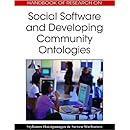
amateurs and volunteered geography
April 8, 2008An interesting paper was advertised in one of the Springer newsletters:
Citizens as sensors: the world of volunteered geography
Michael F. Goodchild
GeoJournal (2007) 69:211–221
Why i find this paper interesting is that it asks the questions why do people do this. We truly don’t believe that it is done because to make better maps. Why would an amateur geographer do it?
I would just think of processes like:
– creating niches for ourselves, for better embodiment and enaction
– playfully following some cultural practices because we can, and because the environment calls for such actions,
– leaving for ourselves mental maps to free our thinking same way as we have learned to trust the files in our computer as an extra memory?
– streaming for self-administered, personalized, user-tagged and thus more appropriately filtered content for triggering our emotions and actions
Here are some from the paper:
Why is it that citizens who have no obvious incentive are nevertheless willing to spend large amounts of time creating the content of Volunteered Geographic Information sites?
Self-promotion is clearly an important motivator of Internet activity
Public personal usage – Many users volunteer information to Web 2.0 sites as a convenient way of making it available to friends and relations, irrespective of the fact that it becomes available to all.
Personal satisfaction from seeing their own contributions appear in the growing patchwork.
While geographic naming has been centralized and standardized, and assigns no role to obscure individuals, the new web 2.0 environments have given rise to the composition of layers of new kind of volunteered geographic information.
Remote sensing with satellites has replaced mapping.
Very few people know the latitude and longitude of their home, but in normal human discourse it is place-names that provide the basis of geographic referencing.
In Wikimapia…
anyone with an Internet connection can select an area on the Earth’s surface and provide it with a description, including links to other sources. Anyone can edit entries, and volunteer reviewers monitor the results, checking for accuracy and significance.
Google Earth and Google Maps popularized the term mash-up, the ability to superimpose geographic
information from sources distributed over the Web, many of them created by amateurs.
Practicality:
A collection of individuals acting independently, using shared protocols and standards, and responding to the needs of local communities, can together create a patchwork coverage.
Networks of human sensors
Humans themselves, each equipped with some working subset of the five senses and with the intelligence to compile and interpret what they sense, and each free to rove the surface of
the planet.









[…] kaipata wrote an interesting post today on amateurs and volunteered geographyHere’s a quick excerptGoogle Earth and Google Maps popularized the term mash-up, the ability to superimpose geographic information from sources distributed over the Web, many of them created by amateurs. Practicality:. A collection of individuals acting … […]